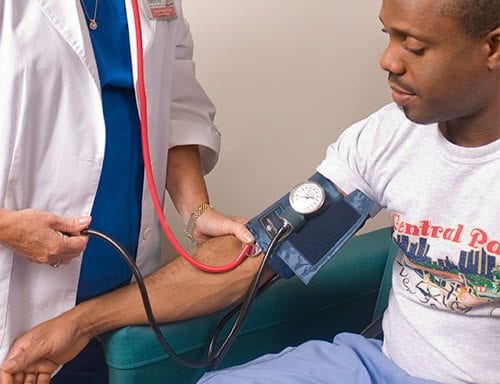
The Centers for Disease Control and Prevention asks a strange question on their website — “how old is your heart”? That doesn’t seem to make much sense. Surely if you’re 40, your heart is 40 as well. But, according to the CDC, that’s not always the case.
Goals for a healthy heart
Blood pressure: Less than 120/80
Total cholesterol: Less than 200
Obesity: BMI of 18.5–24.9
Blood glucose: Less than 140 (random)
Exercise: 250 minutes a week
Diet: Fruits, veggies, whole grains, healthy fats
Smoking: None
Heart age is the age of your heart and blood vessels as a result of your risk factors for heart attack and stroke, according to the CDC. Some of these risk factors, such as age and family history, cannot be controlled. Others, however, can be changed or managed: high blood pressure, high cholesterol, smoking, obesity, unhealthy diet, inactivity and even diabetes.
Unfortunately, this “old heart” phenomenon is wide spread. One in two men and two in five women have a heart age five or more years older than their actual age, the CDC found. It is linked to three in four heart attacks and strokes. This age discrepancy occurs in both genders and all races. African Americans, however, averaged a heart age of 11 years older than actual age largely because of uncontrolled high blood pressure and weight.
There are geographic differences as well. Several southern states, such as Mississippi and Alabama have the highest percentage of adults whose heart age is 5 or more years older than their actual age. Many states in the Northeast and West, on the other hand — including Massachusetts — have the lowest percentage of such adults.
All’s not lost. It is possible to lower the heart age by eliminating or lowering the risk factors. The goal is to have a heart that is the same or younger than one’s real age. Just take one risk factor at a time.
To get an estimate of your heart age visit www.cdc.gov/vitalsigns/cardiovasculardisease/heartage.html.






